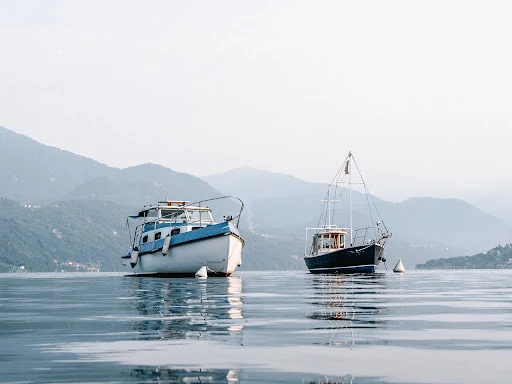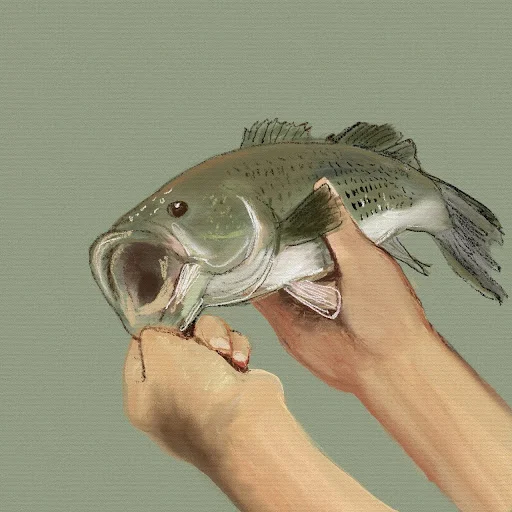Blue-Economy-and-Strategies-for-Sustainable-Fisheries-Management: A-Comprehensive-Approach
Blue Economy and Strategies for Sustainable Fisheries Management: A Comprehensive Approach
Dave Ikiedei Asei
23/04/2024
Introduction
Sustainable fisheries management is paramount in ensuring the long-term health and viability of marine ecosystems and the livelihoods of millions of people worldwide who depend on fisheries for food security and economic well-being. However, achieving sustainability in fisheries requires a multifaceted approach that addresses governance, science-based management, sustainable practices, research and monitoring, capacity building, and collaboration among various stakeholders. In this article, we will look into strategies for sustainable fisheries management, emphasizing the importance of policy reform, science-based measures, sustainable practices, research and monitoring, capacity building, and collaboration.
Strengthening Governance Frameworks
One of the cornerstones of sustainable fisheries management is the strengthening of governance frameworks through policy reform, enforcement, and stakeholder participation. Effective governance ensures that fisheries are managed transparently, equitably, and with consideration for ecological, social, and economic factors. Policy reforms are necessary to establish clear legal frameworks, allocate fishing rights, and regulate fishing activities. Enforcement mechanisms, including monitoring, control, and surveillance (MCS) measures, are essential to ensure compliance with regulations and deter illegal, unreported, and unregulated (IUU) fishing. Furthermore, stakeholder participation, including engagement with fishers, communities, NGOs, and other relevant actors, is crucial for the development and implementation of fisheries management measures that are inclusive and effective.
Implementing Science-Based Fisheries Management Measures
Science-based fisheries management is vital for ensuring the sustainability of fish stocks and ecosystems. This approach involves conducting stock assessments to estimate fish population sizes, setting scientifically informed catch limits or quotas to prevent overfishing, and establishing marine protected areas (MPAs) to conserve critical habitats and biodiversity. Stock assessments utilize data on fish abundance, biomass, reproduction rates, and other ecological parameters to evaluate the status of fish stocks and inform management decisions. Quota systems, such as total allowable catches (TACs) and individual transferable quotas (ITQs), allocate fishing rights based on scientific advice to prevent overexploitation and promote sustainable harvesting. MPAs, designated areas where fishing activities are restricted or prohibited, safeguard vulnerable species and habitats, enhance resilience to environmental pressures, and support ecosystem recovery.
Promoting Sustainable Fishing Practices
Promoting sustainable fishing practices is essential for minimizing environmental impacts, reducing bycatch, and maintaining ecosystem integrity. Selective gear use, such as gear modifications and fishing gear switching, can reduce the capture of non-target species and minimize habitat damage. Bycatch reduction measures, including the use of escape devices, time-area closures, and gear restrictions, help mitigate unintended catches of endangered species and juveniles. Ecosystem-based management approaches consider the interactions between target species, non-target species, and their habitats to ensure the sustainability of fisheries and the broader marine ecosystem. By integrating ecological knowledge into management decisions, ecosystem-based management promotes resilience and adaptive capacity in the face of environmental change.
Investing in Research, Monitoring, and Data Collection
Investing in research, monitoring, and data collection is essential for improving our understanding of marine ecosystems, assessing the effectiveness of management measures, and supporting adaptive management. Research initiatives provide valuable insights into fish biology, ecology, and behavior, contributing to better-informed decision-making. Monitoring programs track fishing activities, stock abundance, catch composition, and ecosystem indicators to evaluate the performance of fisheries management measures and detect changes in ecosystem health. Data collection efforts, including fisheries-independent surveys, onboard observers, and electronic monitoring systems, provide essential information for stock assessments, compliance monitoring, and scientific research. By investing in research, monitoring, and data collection, decision-makers can make evidence-based decisions and adapt management strategies to changing environmental conditions and societal needs.
Enhancing Capacity Building and Education
Enhancing capacity building and education is critical for empowering fishers, communities, and relevant stakeholders to participate effectively in fisheries management and conservation efforts. Capacity building initiatives provide training and technical assistance to improve fishing practices, enhance compliance with regulations, and build resilience to environmental challenges. Education programs raise awareness about the importance of sustainable fisheries management, ecological principles, and the role of stakeholders in conservation. By building the capacity of fishers, communities, and relevant stakeholders, we can foster a culture of responsible fishing practices, environmental stewardship, and adaptive management.
Fostering Partnerships for Integrated Coastal Management
Fostering partnerships between government agencies, NGOs, academia, and the private sector is essential for promoting integrated coastal management and sustainable development. Collaboration among diverse stakeholders enables the exchange of knowledge, expertise, and resources to address complex challenges facing coastal and marine ecosystems. Government agencies play a key role in policy formulation, regulation, and enforcement, while NGOs and academia provide scientific expertise, technical assistance, and advocacy support. The private sector, including fishing industry associations and seafood retailers, can contribute to sustainable fisheries management through responsible business practices and supply chain transparency. By working together, stakeholders can develop innovative solutions, leverage funding opportunities, and implement integrated approaches to coastal management that balance conservation and development objectives.
Conclusion
Sustainable fisheries management requires a comprehensive approach that addresses governance, science-based management, sustainable practices, research and monitoring, capacity building, and collaboration among stakeholders. By strengthening governance frameworks, implementing science-based measures, promoting sustainable practices, investing in research and monitoring, enhancing capacity building and education, and fostering partnerships for integrated coastal management, we can achieve the dual goals of conserving marine biodiversity and supporting the livelihoods of coastal communities. It is imperative that policymakers, resource managers, scientists, and stakeholders work together to ensure the long-term sustainability of fisheries and the marine environment for future generations.












Comments